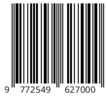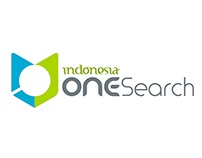Persepsi Pengajar dan Pembelajar Bahasa Inggris Terhadap Penggunaan Artificial Intelligence (AI) untuk Literary Writing
Abstract
Keywords
Full Text:
PDFReferences
Hyland, K. (2022). English for Specific Purposes: What is it and Where is it Taking Us? ESP Today, 10(2), 202–220. https://doi.org/10.18485/esptoday.2022.10.2.1
Mohammad, S. M. (2020). ARTIFICIAL INTELLIGENCE IN INFORMATION TECHNOLOGY. International Journal Of Innovations in Engineering Research and Technology (IJIERT), 7(6), 168–175.
Mushthoza, D. A., Syariatin, N., Tahalele, O., Telussa, S. I., RAsmita, & Mokodenseho, S. (2023). Analyzing The Impact On Artificial Intelligence (AI) On The Future Of English Language Teaching and Learning. Journal on Education, 6(1), 1549–1557.
Nash, B. L., Hicks, T., Garcia, M., Fassbender, W., Alvermann, D., Boutelier, S., McBride, C., McGrail, E., Moran, C., O’Byrne, I., Piotrowski, A., Rice, M., & Young, C. (2023). Artificial Intelligence in English Education: Challenges and Opportunities for Teachers and Teacher Educators. English Education, 55(3), 200–233. https://doi.org/10.58680/ee202332555
Putra, D. M., & Suharto, R. P. (2022). Pembuatan Vlog Bisnis oleh Mahasiswa Bahasa Inggris sebagai Model Pembelajaran Online Mata Kuliah Speaking. Jurnal Terapan Pendidikan Dasar Dan Menengah, 2(4), 712–719.
Singh, C. K. S., Ong, E. T., Singh, T. S. M., Maniam, M., & Mohtar, T. M. T. (2021). Exploring ESL Learners’ Reading Test Taking Strategies. Studies in English Language and Education, 8(1), 227–242. https://doi.org/10.24815/siele.v8i1.18130
Suharto, R. P. (2022). Persepsi Mahasiswa Bahasa Inggris terhadap Penggunaan YouTube sebagai Media Pembelajaran Online Matakuliah English for MICE. Jurnal Terapan Pendidikan Dasar Dan Menengah, 2(4), 704–711.
Suharto, R. P. (2023). Teamwork’s Experiences through Project-Based Webinar in English for Public Speaking. Pubmedia Jurnal Pendidikan Bahasa Inggris, 1(2), 1–8. https://doi.org/10.47134/jpbi.v1i2.61
Suharto, R. P., Rahayu, E. L., & Agustina, H. N. (2023). The Use of Mind Map in Collaborative Learning Activities of a Literary Reading Class. BRILIANT: Jurnal Riset Dan Konseptual, 8(3), 543–550. https://doi.org/10.28926/briliant.v8i3
Weel, A. Van der, & Mangen, A. (2022). Textual reading in digitised classrooms: Reflections on reading beyond the internet. International Journal of Educational Research, 115(102036), 1–9. https://doi.org/10.1016/j.ijer.2022.102036
Yilmaz, M., Atay, D., & Mustafa, E. R. (2020). The Effect of Extensive Reading on Turkish Leamers' L2 Reading/Writing Performance and Foreign Language Self-Concept The Journal og Asia TEFL, 17 (1), 53-69. https://doi.org/10.18823/asiatefl.2020.17.1.4.53
Zubaidi, Suharto, R. P., & Maulidiyah, F. (2023). Improving Students’ Creative Writing Skill through Project Based Learning Using Wattpad as Learning Media Technology. BRILIANT: Jurnal Riset Dan Konseptual, 8(1), 94–110. https://doi.org/http://dx.doi.org/10.28926/briliant.v8i1.1169
Zubaidi, Suharto, R. P., & Rahayu, E. L. (2021). Improving Students’ Speaking Skill through Students Vlog Project as PBL Output on Online Speaking Class. BRILIANT: Jurnal Riset Dan Konseptual, 6(4), 764–774. https://doi.org/10.28926/briliant
DOI: https://doi.org/10.31002/transformatika.v8i1.8269
DOI (PDF): https://doi.org/10.31002/transformatika.v8i1.8269.g3332
Refbacks
- There are currently no refbacks.
Copyright (c) 2024 Ririn Pratiwi Suharto

This work is licensed under a Creative Commons Attribution-ShareAlike 4.0 International License.


_(2)_.png)
.png)
_.png)
.png)
.png)















